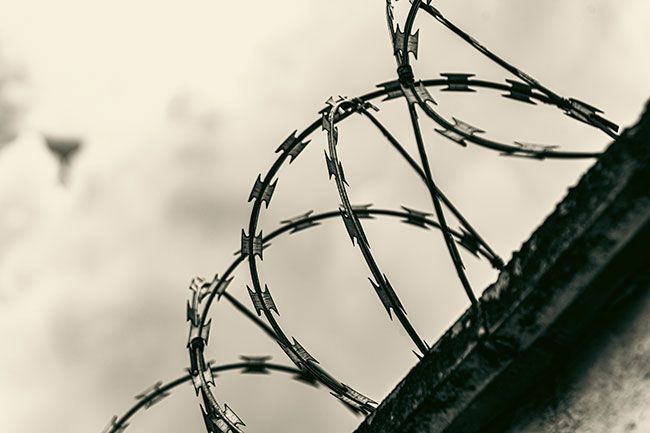Barrett Rainey: Echoes sound from detention of young Japanese classmates

Remember your second-grade classroom?
A wall of windows, a wall of blackboards. Little desks lined up evenly, front to back and side by side, nailed to wooden rails. An American flag hanging up front. A teacher’s desk front and center.
Imagine 7-year-olds, 22 to 26 of them split about evenly between boys and girls, sitting at attention. Now imagine four armed Douglas County sheriff’s deputies entering through the door in the rear of the classroom, their boots thumping loudly on the shiny wooden floor as they marched toward the now badly frightened kids.
Quickly, the big men scooped up half a dozen children and carried them, screaming, out the door and down the empty hall.
Then, silence — except for the crying of kids in the room, now sitting in terror. They were absolutely scared to death.
I lived that scene. I, too, cried — for a long time.
Back in my day, the kids being carried out were Japanese American.
It was early ‘42, when every Japanese American in the nation was suddenly looked at as a personal manifestation of our national enemy. No matter how old, no matter how young, they represented an enemy we were suddenly at war with.
I had no youthful bad feelings toward my young friends, whom I’d often known since birth.
It was no excuse for Jimmy Yoshida that he had been born three blocks from that classroom filled with desks. The little 7-year-old was now treated as an enemy combatant.
It was the same for his parents, who were being arrested around the same moment. And more than likely, they’d been born in this country, too.
All this — and much more — flooded my mind while reading about our president using the word “invasion” in describing immigration at our southern border.
Invasion? Invasion is a word normally used to describe an armed attack by hostile forces. It conjures up scenes of tanks, artillery and squads of heavily armed troops.
Invasion by an enemy? No, what we’re really talking about here are small groups of Mexicans, Nicaraguans, Brazilians, Chileans and so forth, largely unarmed.
Families and friends coming north over our southern border carrying prized possessions and family heirlooms on their backs. Folks seeking freedoms not available to them in their home countries, just wanting a better world for their kids and their neighbor’s kids.
“Invasion,” he said loudly, using the word to condemn.
I sincerely wish we could package and export what these people are coming here for. It’s freedom, opportunity, better lives, respect, peace and safety for their families.
Since we can’t package all that, they have to come here for it. And, therein, lies the crux of the problem.
It’s not the individual immigrant as much as it is what comes out of our president’s mouth: Words without thought. Words without understanding. Words without compassion. Dangerous and ignorant words that can hurt.
The president might not mean it that way. But some of the things he says about immigrants remind me of sheriff’s deputies of ‘42 — of boots sounding in the hallway, of cries uttered by terrified youngsters.
Our president has no idea how to deal with the common man. That’s because he’s never been one.
He’s never had to reach for something just out of his grasp. He’s never had to live without something he couldn’t have.
Like freedom.
About the writer: Barrett Rainey is an Air Force veteran, longtime pilot and former reporter for radio and TV stations from Cheyenne, Wyoming to Washington, D.C. After previous stints in Oregon, Idaho and Arizona, he retired to McMinnville with his wife, Barbara. He’s a regular contributor to the Carlton-based Ridenbaugh Press, where this column originated.











Comments
mikes
Mr Rainey. As some one born during WWII to into a family who's "old Country" was an enemy. We were European enemy, so were treated like Caucasians, if you know what I mean. But there was fear and cost. Thank you for your story.
Judy
Thank you for this article. It's a sad reminder of the not so distant past. Have we forgotten the lessons learned from that time?